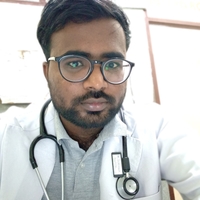
- हिं - हिंदी
- En - English
- म - मराठी
- తె - తెలుగు
- த - தமிழ்
- বা - বাংলা

While not mandatory, it is recommended that everyone get the COVID-19 vaccine when their turn comes. Once you receive the vaccine, your body will start producing antibodies against the COVID-19 virus so that you’re prepared to fight the infection if you do become exposed. Being vaccinated against COVID-19 would significantly reduce your chances of suffering from complications and needing hospitalisation if you get infected. Evidence suggests that it would also make it less likely for you to transmit the virus to others if you catch it.

At this point, three different vaccines have been approved and made available in India - Covishield, manufactured by AstraZeneca and the University of Oxford, Covaxin by Bharat Biotech International Limited and, latest to join the list, Sputnik V by Gamaleya Research Institute of Epidemiology and Microbiology, Moscow. Covishield is said to be 63% effective, while Covaxin has an efficacy rate of 81%. According to the Lancet, Sputnik V provides 91% protection against COVID-19. Despite these variations in efficacy, all three of them have been declared safe and effective and you can get whichever one becomes available to you first. Other vaccines may soon be available in India as well.

Generally, vaccines do contain some material from the virus so that your body can produce an immune response that’s specific to that particular virus. Covaxin contains the dead virus and Covishield employs the use of a small portion of the virus; both of them are unable to replicate after being injected into the body, leaving very little chance of you developing COVID-19 from it.

Recently, a government panel has suggested that those who’ve had COVID-19 infection get the vaccine six months after their recovery. While this is only a recommendation, it is, of course, required that you wait until you’ve fully recovered before getting the vaccine. Even if you were asymptomatic or experienced very mild symptoms, you should wait for at least 14 days from when you first experienced any symptoms (or tested positive in case of asymptomatic cases). In an ideal scenario, you would have some antibodies already after recovering from the infections, which would allow you to safely defer vaccination for about two months. Unfortunately, there is no certainty of how long the immunity would last and it’s best you consult with your physician regarding the vaccination.

The COVID-19 vaccine does not provide 100% protection against the virus, which is why following precautions even after being vaccinated is necessary. There have been many cases where individuals who’ve been fully vaccinated have tested positive for the virus. But, evidence shows that symptoms often milder in these individuals and they have a reduced chance of requiring hospitalization or experiencing severe complications.

As of May 1st, anyone over the age of 18 is eligible to receive the vaccine. If you have any underlying conditions that make you doubt your ability to get vaccinated then you should speak to your healthcare provider about the same and follow their instructions. In the case of pregnant women, if the benefits outweigh the risks, their doctor may recommend they get the vaccine. For example, if the woman is a frontline worker.

All the vaccines available in India require you to receive two doses. Studies show that getting one shot of Covishield can cut the risk of transmission within a household by 50%. When the second dose is taken at an interval of 12 or more weeks, findings show that the efficacy of the Covishield vaccine increases to 82%.

There are some chances of you feeling mild side effects after receiving the COVID-19 vaccine. Pain and tenderness may be felt at the site of the injection, which is why it’s best to get it in your non-dominant arm. You may also experience mild fever, body ache, tiredness, headache, chills and nausea. All side-effects would fade away themselves but paracetamol can be taken to aid recovery at this time. If the side effects persist or become severe, reach out to your doctor.

While experiencing vaccine side effects can be considered a good sign, it does not mean that not experiencing any side effects is a bad sign. Once you receive the vaccine, your body starts to prepare itself to fight off the virus. Your immune system creates antibodies and your body temperature rises for this purpose. This may result in some mild symptoms, which can be taken as a positive sign of the vaccine doing its job. But different people react differently to the vaccine; it does not mean that the vaccine isn’t effective in some.

The presentation of vaccine side effects may change from person to person. Experts suggest that they could start to appear 24 hours after your receive the injection. Experiencing side effects of the vaccine is completely normal, extremely common and not a cause for worry.

The duration of side effects could vary from one individual to the other. It is common for them to last anywhere between a day to a week. If the side effects persist beyond 7 days, you should consult with your healthcare provider.

The COVID-19 vaccines do not provide complete protection from the virus. Once you’re vaccinated, you have a reduced risk of requiring hospitalisation, experiencing severe complications or transmitting the virus to others but there is still some risk. It’s very important that you continue taking all precautions for this reason, especially during a peak in the number of cases.

Over the last few months, the gap between Covishield doses has been increased and this may have caused some confusion. Originally, the gap between the doses was to be 28 days. Then, the gap between two doses of Covishield was changed to be 6 to 8 week. Now, the central government has widened the gap between the two doses to 12 to 16 weeks, citing evidence that suggests a stronger immune response in this scenario. The gap required between Covaxin doses has not changed and remains at a minimum of 28 days.

Currently, there is no data available on the effects of one person receiving a dose of each of two different vaccines. It is best to avoid this scenario at the moment or discuss it with your doctor if you’re unable to get the second dose of the vaccine you received for your first dose.

A new study published in Obstetrics & Gynecology has suggested that the COVID-19 vaccine may be safe for pregnant women, although the vaccines used for this research were the Moderna and Pfizer ones. The vaccines available in India have not yet been tested on pregnant or lactating women but a government panel has said that pregnant and breastfeeding women can take either (Covishield or Covaxin) of the vaccines. It’s best to speak to your physician about getting vaccinated and follow their advice if you are or suspect you might be pregnant.